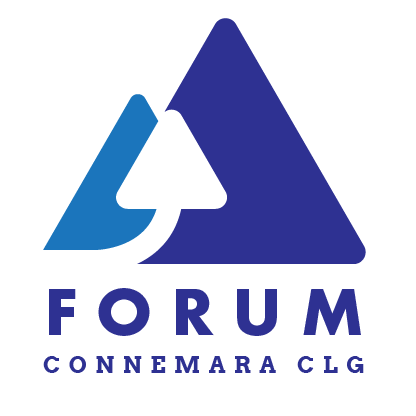The North Connemara Locally led Agri-Environmental Scheme (NCLLAES) was a European innovation Partnership (EIP). The scheme was funded by the Department of Agriculture through the Rural Development plan 2014-2020. The scheme was administered by FORUM Connemara CLG. The NCLLAES project area covered two Special Areas of Conservation (SAC’s) the Twelve Bens and Maum Turk mountain ranges. The scheme integrated local farmers with individuals from the agricultural industry, to tackle the decline of the economic and social viability of farming in this environmentally important area.
The scheme ran for three years and ended on March 31st 2023.
The specific initiatives of the scheme were:
· Habitat surveys and improvement plans
· Improving the Blackface sheep flock
· Increasing the social interaction within the local farming community
· Controlling and removing Rhododendron at a farm level
· Innovation through the use of technology
· Interaction with the wider community through Tidy Towns groups and local schools
Farmers who join the scheme will have their land surveyed by the project team. The survey will determine the ecological score of the farm. Farmers will receive payment based on this score. The project team will then recommend actions which will improve the habitats on the farm.
Habitat surveys & improvement plans
The aims of the habitat improvement actions were:
1. To increase the biodiversity of the habitats
2. To protect water quality
3. To improve carbon sequestration
4. To create a new habitat
5. To increase the agricultural viability of the plot
6. To control invasive species
7. To maintain the quality of the habitat at its current level
Improving blackface sheep flock
Hill farming practices have remained relatively unchanged for generations. This is because many of the traditional practices are still considered to be the best way to do things. As such, many of the more positive traditional practices along with some new techniques have been included in the scheme. Other new practices based on marketing and health have also been included.
Increasing the social interaction within the local farming community
There are limited social options for farmers in the region. With the removal of the national knowledge transfer scheme as an option for farmers, a replacement was needed. The NCLLAES organised meetings on topics of interest to farmers in the locality. If successful, these meetings would be a foundation for continued social meetings in the future.
Controlling and removing rhododendron at farm level
Rhododendron is one of the most visible invasive species found in the project area. Providing information to as manylandownerss and members of the public as possible on the best methods to control and remove the plants will control and reduce the spread of the plant in the north Connemara area. Further information relating to invasive species is available below.
Innovation through the use of technology
The project team are trialing a new habitat survey app which has been specifically developed for the NCLLAES project. They will also explore the possibility of utilising technology in agricultural equipment.
NCLLAES in the wider community
The project team also worked with local tidy towns committees and local schools to promote and encourage an interest in the ecology and agricultural heritage of North Connemara.
Links
Rhododendron control video: https://www.youtube.com/watch?v=3JeZUTBSO8Y
Galway County Council Gunnera control: https://dpdgay9x1sxad.cloudfront.net/biodiversity/wp-content/uploads/sites/16/2016/11/Gunnera-proof-5.pdf
Twitter: https://twitter.com/ConnemaraLed
Facebook: https://www.facebook.com/NorthConnemaraEIP/



